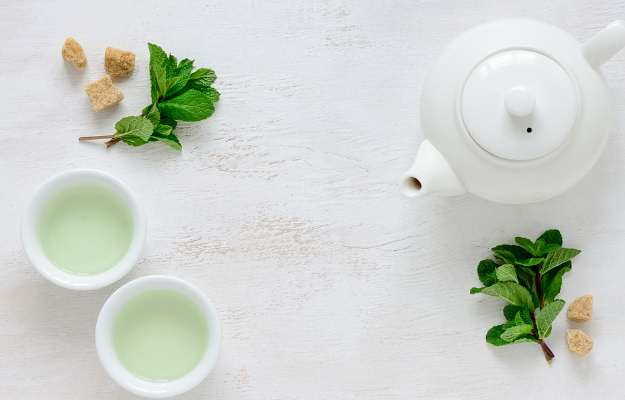Did you ever wonder what exactly is green tea? Or if it is any different from your regular tea? If yes, where does it come from and how? Let's try and answer these queries one by one for you.
You’ll be astonished to know that all types of tea are made from a single type of plant, Camellia sinensis commonly called the “Tea plant”. The difference arises from the level of oxidation that the raw tea leaves have gone through. Ideally, black tea is the most oxidized and green tea is unoxidized. The famous Oolong tea is partially oxidized while there are some varieties of tea which are fermented but not always oxidized (Puerh tea).
Now, is the biological term oxidation coming in between you and your understanding of tea? let's explain. Oxidation is the absorption of oxygen by food, which causes changes in the biochemistry of the food, in this case, raw tea leaves. Ever noticed the apples turning brown when left cut? That is oxidation. Though, in case of preparing tea, oxidation is partly natural and partly done in controlled conditions by monitoring the temperature and humidity of the rooms. Once the leaves reach a specific level of oxidation, the process is stopped by a specific heating procedure. Now, oxidation is a natural process that can’t be stopped completely but it can be slowed down enough to give the tea a good shelf life.
Your regular tea is usually black tea boiled with milk and sugar added to it. There are some people who claim that the addition of milk and sugar does more harm than good for your health but an opposite claim exists as well. So, due to lack of scientific proofs, it is best to check with a nutritionist about what will suit your body type more.
Herbal teas are prepared from various plants like Hibiscus, Jasmine, Chamomile instead of the tea plant. So, they are not considered green tea. However, a lot of green tea flavours are available in the market like mint tea, jasmine tea, lemon tea etc. It is always advisable to check the label for the genuinity of the product.
Loose green tea is commercially available with a lot of tea brands. However, if you are a tea enthusiast and looking for a particular variety of tea, you can easily buy it in the form of tea bags, green tea powder, capsules, and tablets.
Decaffeinated green tea is a kind of green tea which has been treated to remove its caffeine. While it is considered a better option for people who cannot tolerate caffeine, it reduces the number of antioxidants in the tea. But, there have been no studies to detect the difference between decaf green tea and normal green tea.
Types of Green Tea
The world of tea is probably as diverse as the type of people around the globe. If we start listing tea varieties it’ll probably take a whole new article to cover and who knows maybe more. Japan alone grows at least 10 famous varieties of tea. Still, for the sake of knowledge, we should study a few known varieties of green tea available in trade.
- Sencha green tea:
Sencha is the most common form of Japanese green tea and it is the easiest to prepare. To prepare it, raw tea leaves are steamed, rolled and dried to stop oxidation and to give them their traditional shape. The leaves are then boiled with a cup of water to be consumed.
- Gyokuro green tea:
This variety of tea differs from the sencha tea in processing. The plants are covered with a cloth at least 20 days before harvesting. This is done to reduce the number of catechins in the leaves which makes the tea more flavourful. Another variety of tea, Kabusecha, is grown in a very similar manner but the tea plant is only covered for a week.
- Matcha green tea:
Matcha tea is a grounded (powdered) form of another type of green tea which is known as Tencha. Tencha is grown in shade, just like Goykuro, but the covering time is much longer than 20 days and the leaves are dried without rolling. Tencha tea, when it is grounded just before it is shipped is called matcha.
- Chinese gunpowder tea:
This Chinese green tea gets its name from the distinct shape its leaves are rolled and dried into after its processed and steamed. It has a unique smokey flavour that is apt for its namesake.

















